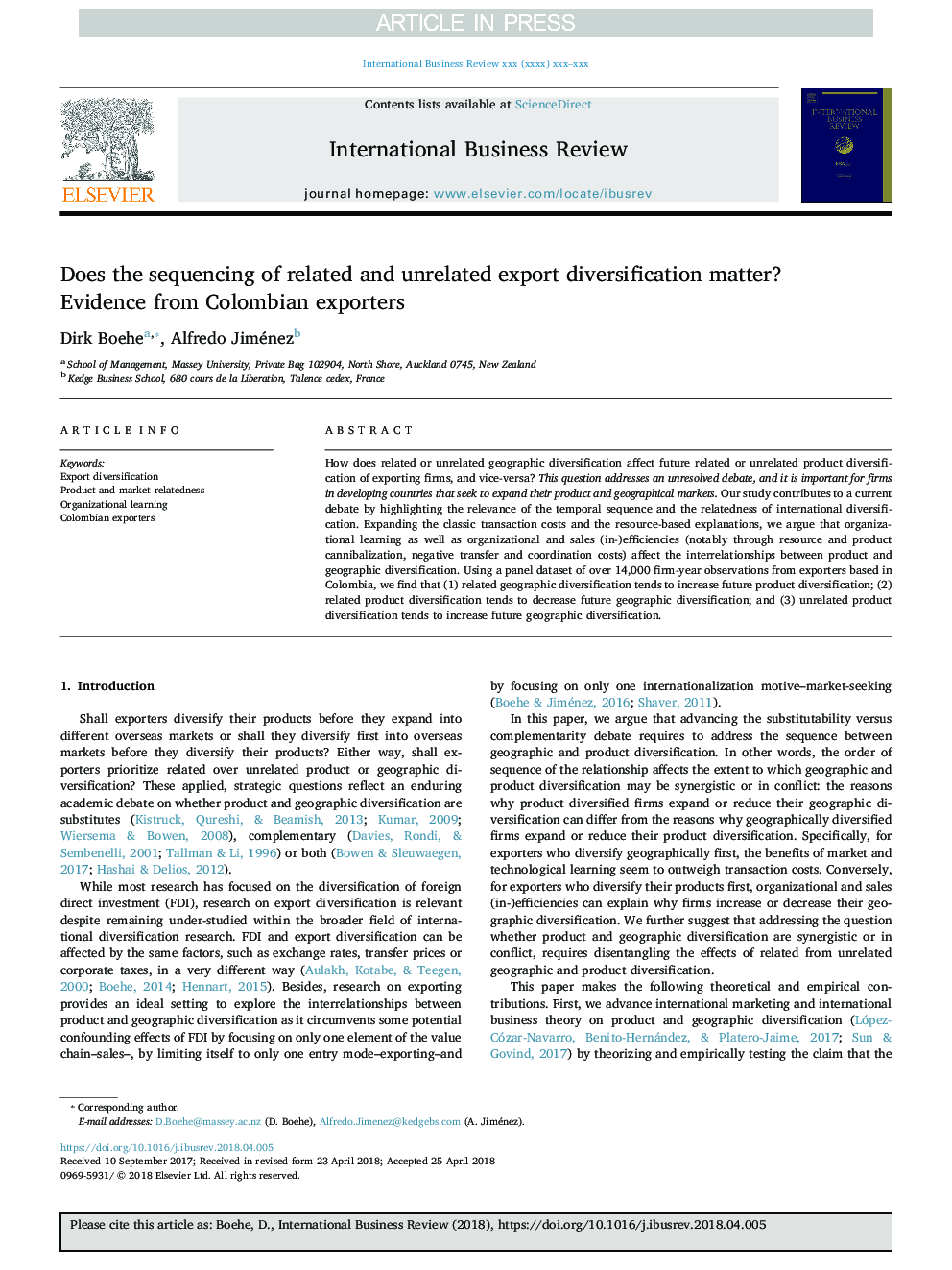| Article ID | Journal | Published Year | Pages | File Type |
|---|---|---|---|---|
| 8965256 | International Business Review | 2018 | 9 Pages |
Abstract
How does related or unrelated geographic diversification affect future related or unrelated product diversification of exporting firms, and vice-versa? This question addresses an unresolved debate, and it is important for firms in developing countries that seek to expand their product and geographical markets. Our study contributes to a current debate by highlighting the relevance of the temporal sequence and the relatedness of international diversification. Expanding the classic transaction costs and the resource-based explanations, we argue that organizational learning as well as organizational and sales (in-)efficiencies (notably through resource and product cannibalization, negative transfer and coordination costs) affect the interrelationships between product and geographic diversification. Using a panel dataset of over 14,000 firm-year observations from exporters based in Colombia, we find that (1) related geographic diversification tends to increase future product diversification; (2) related product diversification tends to decrease future geographic diversification; and (3) unrelated product diversification tends to increase future geographic diversification.
Related Topics
Social Sciences and Humanities
Business, Management and Accounting
Business and International Management
Authors
Dirk Boehe, Alfredo Jiménez,
